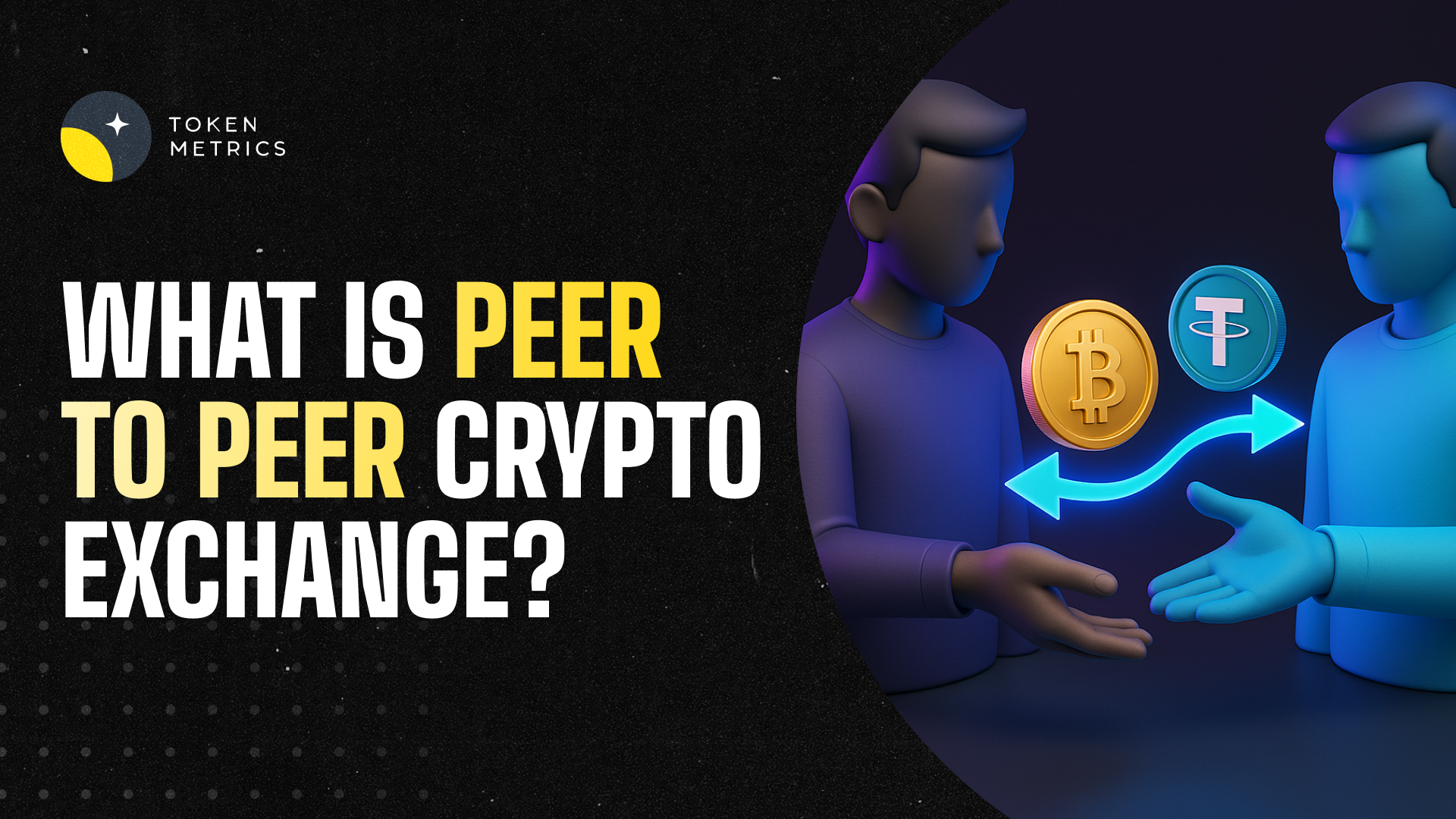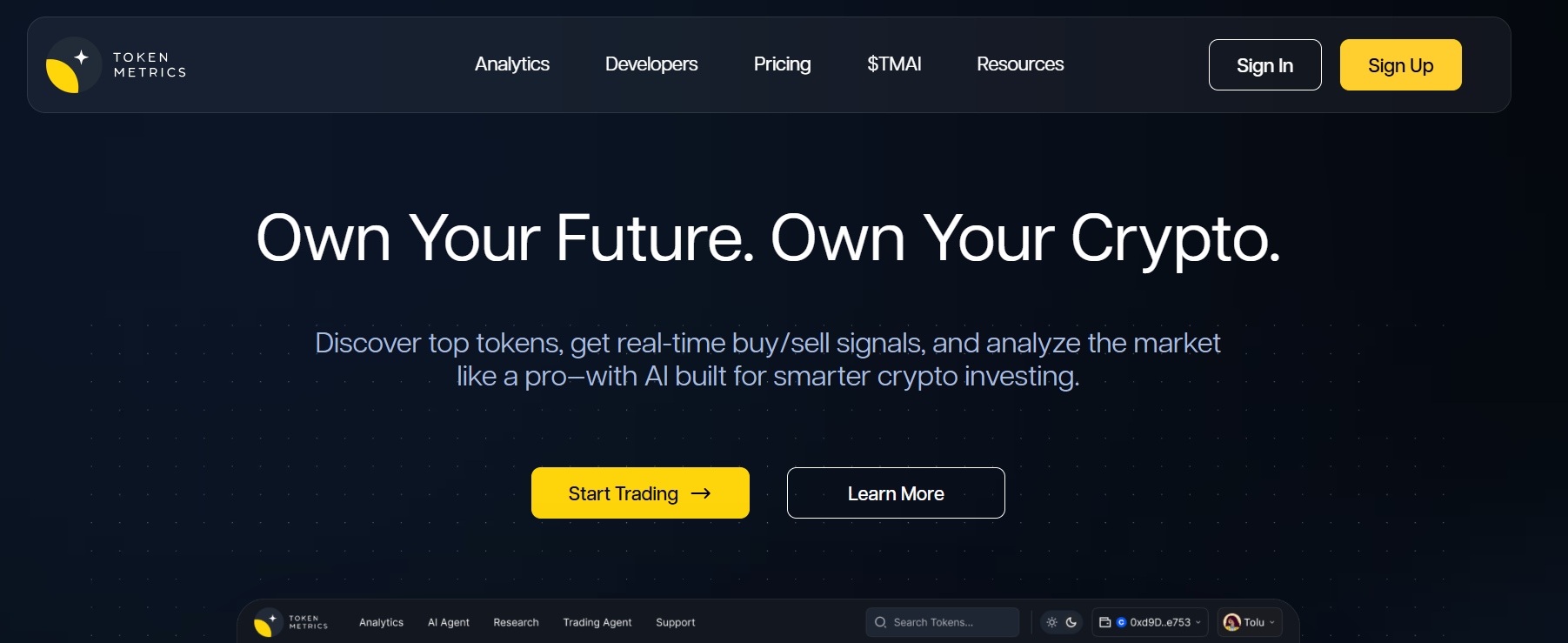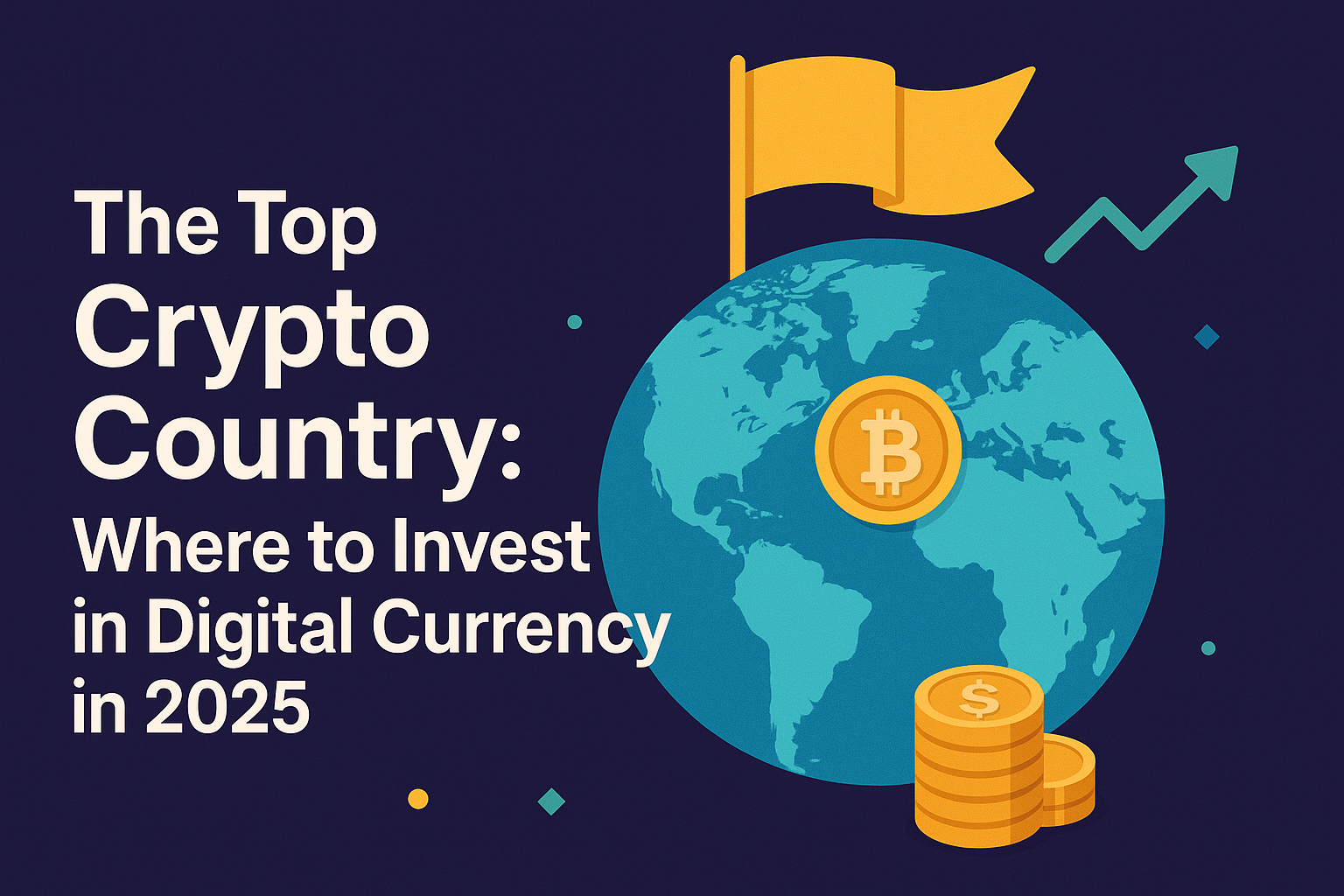
Top Crypto Prediction Markets: The Complete 2025 Guide to Trading the Future

The prediction revolution is transforming crypto investing in 2025. From AI-powered price prediction platforms to blockchain-based event markets, today's tools help investors forecast everything from token prices to election outcomes with unprecedented accuracy. With billions in trading volume and cutting-edge AI analytics, these platforms are reshaping how we predict, trade, and profit from future events. Whether you're forecasting the next 100x altcoin or betting on real-world outcomes, this comprehensive guide explores the top prediction tools dominating 2025.
Understanding Crypto Prediction Tools vs. Prediction Markets
Before diving in, it's crucial to distinguish between two types of prediction platforms:
- Crypto Price Prediction Platforms (like Token Metrics) use AI and data analytics to forecast cryptocurrency price movements, identify promising tokens, and generate trading signals.
- Event Prediction Markets (like Polymarket and Kalshi) are blockchain-powered platforms where users trade on real-world event outcomes—elections, sports, economic indicators, and yes, even crypto prices.
Both serve valuable but different purposes. Let's explore the top tools in each category.
The #1 Crypto Price Prediction Platform
Token Metrics - AI-Powered Crypto Intelligence Leader
Token Metrics stands as the premier AI-driven crypto research and investment platform, scanning over 6,000 tokens daily to provide data-backed predictions and actionable insights. With a user base of 110,000+ crypto traders and $8.5 million raised from 3,000+ investors, Token Metrics has established itself as the industry's most comprehensive prediction tool.
What Makes Token Metrics the Top Price Prediction Tool:
- AI-Driven Analytics Engine: Token Metrics' AI and machine learning algorithms identify potential trends and predict future price movements by analyzing fundamental reports, code quality, sentiment analysis, moving averages, and support/resistance levels. The platform processes massive datasets 24/7 to spot opportunities before they go mainstream.
- Comprehensive Scoring System: Every token receives both a Trader Grade (for short-term momentum) and Investor Grade (for long-term fundamentals) based on technical analysis, on-chain data, fundamental metrics, sentiment and social data, and exchange data.
- Moonshot Discovery: The Moonshots feature uses AI to highlight daily tokens with 10x–100x potential before they hit major exchanges, giving investors early access to high-upside opportunities.
- Real-Time Signals & Alerts: Get instant bullish and bearish alerts for major tokens, with custom notifications via email, Telegram, or Slack. Never miss a sudden market move or grade change.
- Multi-Strategy Support: Whether you're HODLing long-term, swing trading, narrative investing, or hunting moonshots, Token Metrics provides tailored tools and indices for every strategy.
- Deep Token Analytics: Access detailed insights including historical performance, wallet holder analysis, exchange listings, code quality assessments, and market sentiment tracking.
Why Token Metrics Ranks #1:
Unlike basic charting tools or single-metric analyzers, Token Metrics combines time series data, media news, regulator activities, coin events like forks, and traded volumes across exchanges to optimize forecasting results. The platform's proven track record and comprehensive approach make it indispensable for serious crypto investors in 2025.
Best For:
Investors and traders seeking AI-powered crypto price predictions, portfolio optimization, and early altcoin discovery.
Top Crypto Event Prediction Markets
Polymarket - The Largest Decentralized Prediction Market
Kalshi - The CFTC-Regulated Powerhouse
Drift BET - Solana's Speed Champion
Augur - The Pioneering Protocol
Gnosis - The Infrastructure Powerhouse
Emerging Platforms
Polymarket - The Largest Decentralized Prediction Market
Polymarket dominates the event prediction market space with unmatched liquidity and diverse betting opportunities.
- Over $18.4 billion in trading volume, establishing market leadership
- Built on Polygon for low fees and fast transactions
- Trades in USDC stablecoin for price stability
- Approximately 40% of sales volume from sports betting, 40% from crypto movement predictions
- Open interest recently rose to around $170 million
- No trading fees on transactions
What Sets It Apart: Polymarket proved its forecasting superiority when it accurately predicted election outcomes that traditional polls missed. The platform's user-friendly interface makes blockchain prediction markets accessible to mainstream audiences.
Kalshi - The CFTC-Regulated Powerhouse
Kalshi has surged from 3.3% market share last year to 66% by September 2025, overtaking Polymarket as the trading volume leader.
- First CFTC-regulated prediction market in the United States
- Monthly trading volume hit approximately $1.3 billion in September 2025
- Accepts crypto deposits (USDC, Bitcoin, Solana, Worldcoin) via ZeroHash
- All markets settled in U.S. dollars
- Fees up to 5% of profit, capped at $0.85 per contract
- Recent Developments: Kalshi hired John Wang as Head of Crypto in August 2025 to drive blockchain integration, with plans to be on "every major crypto app and exchange within 12 months." The platform secured a massive $185 million Series C funding round and partnered with Robinhood for sports market expansion.
Drift BET - Solana's Speed Champion
For traders demanding instant settlement and minimal fees, Drift BET represents the cutting edge of prediction markets on Solana.
- Native Solana integration for near-instant finality
- Multi-collateral support
- Extremely low transaction costs
- Growing ecosystem momentum
Why It Matters: By leveraging Solana's near-instant transaction finality, Drift BET solves many scalability issues faced by Ethereum-based prediction markets, with low transaction fees making smaller bets feasible for wider audiences.
Augur - The Pioneering Protocol
Launched in 2018, Augur was the first decentralized prediction market, pioneering blockchain-based forecasting and innovative methods for settlement secured by the REP token.
- Fully decentralized platform
- REP token for market creation, rewards, and disputes
- Augur Turbo version on Polygon for improved efficiency
- Binary, categorical, and scalar market support
Legacy Impact: Augur v1 settled around $20 million in bets—impressive for 2018-19. While the DAO has dissolved, Augur's technological innovations now permeate the DeFi sphere.
Gnosis - The Infrastructure Powerhouse
With a market cap of $463 million, Gnosis is the biggest prediction market project by market capitalization.
- Conditional Token Framework for tokenizing outcomes
- GNO token for governance and staking
- Gnosis Chain Layer 2 solution
- Powers platforms like Omen and Azuro
Ecosystem Approach: Founded in 2015, Gnosis evolved into a multifaceted ecosystem encompassing decentralized trading, wallet services, and infrastructure tools beyond mere prediction markets.
Emerging Platforms
- Robinhood Prediction Markets: Facilitated over 4 billion event contracts, including 2 billion in Q3 2025 alone. Seamlessly integrated into the Robinhood app, with a $0.01 commission + $0.01 exchange fee structure.
- Myriad: Built on Abstract with promising points program, focusing on user rewards and engagement.
- Crypto.com Prediction Trading: CFTC-regulated through Crypto.com Derivatives North America (CDNA). Integrated with existing crypto exchange infrastructure.
How These Platforms Work Together
Smart investors often use Token Metrics for identifying which cryptocurrencies to invest in, then leverage prediction markets like Polymarket or Kalshi to hedge positions or speculate on specific price targets and events.
Example Strategy:
- Use Token Metrics to identify a token with strong Trader Grade and bullish AI signals
- Build a position in that token through AI trading for crypto or indices of your choice
- Use Token Metrics to bet on specific price milestones or related events
- Monitor Token Metrics alerts for exit signals
This combines the best of AI-driven price prediction with market-based event forecasting.
Why Prediction Platforms Are Exploding in 2025
Market Growth Trajectory: The prediction market sector is projected to reach $95.5 billion by 2035, with underlying derivatives integrating with DeFi protocols.
Key Growth Drivers:
- AI & Machine Learning Advancement: Platforms like Token Metrics leverage increasingly sophisticated AI to process millions of data points, delivering predictions that outperform human analysts.
- Regulatory Clarity: The 2024 U.S. election betting legalization and crypto-friendly policies under the Trump administration have opened floodgates for mainstream adoption.
- Proven Accuracy: Prediction markets demonstrated superior forecasting during recent elections, while AI platforms like Token Metrics consistently identify moonshot tokens before mainstream discovery.
- Institutional Interest: Kalshi attracted $1.4 billion in institutional capital in Q2 2025, signaling Wall Street's growing confidence in prediction infrastructure.
- Sports Betting Expansion: Sports betting now drives significant volume, expanding prediction markets beyond politics and finance into entertainment.
Real-World Applications
For Crypto Investors:
- Use Token Metrics to identify high-potential tokens before they pump
- Access AI-generated buy/sell signals for portfolio management
- Discover narrative-driven investment opportunities early
For Event Traders:
- Hedge crypto positions using prediction markets
- Speculate on regulatory outcomes, exchange listings, or network upgrades
- Trade sports and political events for diversified income
For Analysts & Institutions:
- Aggregate market sentiment data for research
- Access real-time forecasting for economic indicators
- Build custom trading strategies using API integrations
Risks and Considerations
For Price Prediction Platforms:
- No prediction tool is 100% accurate; past performance doesn't guarantee future results
- AI models perform best with sufficient historical data
- Market manipulation and black swan events can invalidate predictions
For Prediction Markets:
- Regulatory uncertainty remains in many jurisdictions
- Liquidity challenges can create volatility
- Oracle failures could compromise settlement integrity
- Tax implications require careful record-keeping
The Future: AI + Blockchain Convergence
What's Coming: Token Metrics Evolution—Expect deeper AI agent integration, automated portfolio management, and enhanced moonshot discovery as machine learning models become more sophisticated.
Prediction Market Expansion: Kalshi aims to integrate with every major crypto app within 12 months, while tokenization of positions and margin trading will create new financial primitives.
Cross-Platform Integration: Future platforms will likely combine Token Metrics-style AI prediction with Polymarket-style event markets in unified interfaces.
DeFi Integration: The prediction market derivatives layer is set to integrate with DeFi protocols to create more complex financial products.
Getting Started: Platform Recommendations
For Price Prediction & Portfolio Management:
→ Token Metrics - Unmatched AI analytics, moonshot discovery, and comprehensive scoring
For U.S. Residents (Event Betting):
- → Kalshi - Regulatory compliance, crypto deposits, diverse contracts
- → Robinhood - Simplest onboarding through existing app
For Maximum Liquidity (Event Betting):
- → Polymarket - Largest markets, best pricing, widest selection
For Speed & Low Fees:
- → Drift BET - Solana-powered efficiency
For Developers:
- → Gnosis - Infrastructure tools and frameworks
For Maximum Decentralization:
- → Augur - Censorship-resistant, community-governed
Conclusion: Predicting the Future Is Now Data-Driven
The era of blind speculation is over. Between AI-powered platforms like Token Metrics analyzing thousands of data points per second and blockchain-based prediction markets aggregating collective wisdom, today's investors have unprecedented tools for forecasting the future. Token Metrics leads the charge in crypto price prediction with its comprehensive AI-driven approach, while platforms like Polymarket and Kalshi dominate event-based forecasting. Together, they represent a new paradigm where data, algorithms, and collective intelligence converge to illuminate tomorrow's opportunities.
Whether you're hunting the next 100x altcoin or betting on real-world events, 2025's prediction platforms put the power of foresight in your hands. The question isn't whether to use these tools—it's how quickly you can integrate them into your strategy.
Disclaimer: This article is for informational purposes only and does not constitute financial advice. All investing involves risk, including potential loss of capital. Price predictions and ratings are provided for informational purposes and may not reflect actual future performance. Always conduct thorough research and consult qualified professionals before making financial decisions.

.svg)

Create Your Free Token Metrics Account

.png)




%201.svg)
%201.svg)


%201.svg)















.svg)




.png)